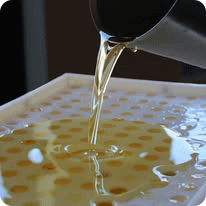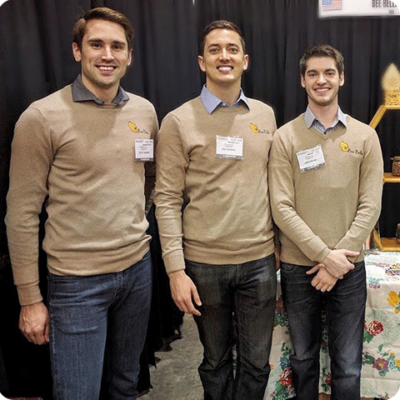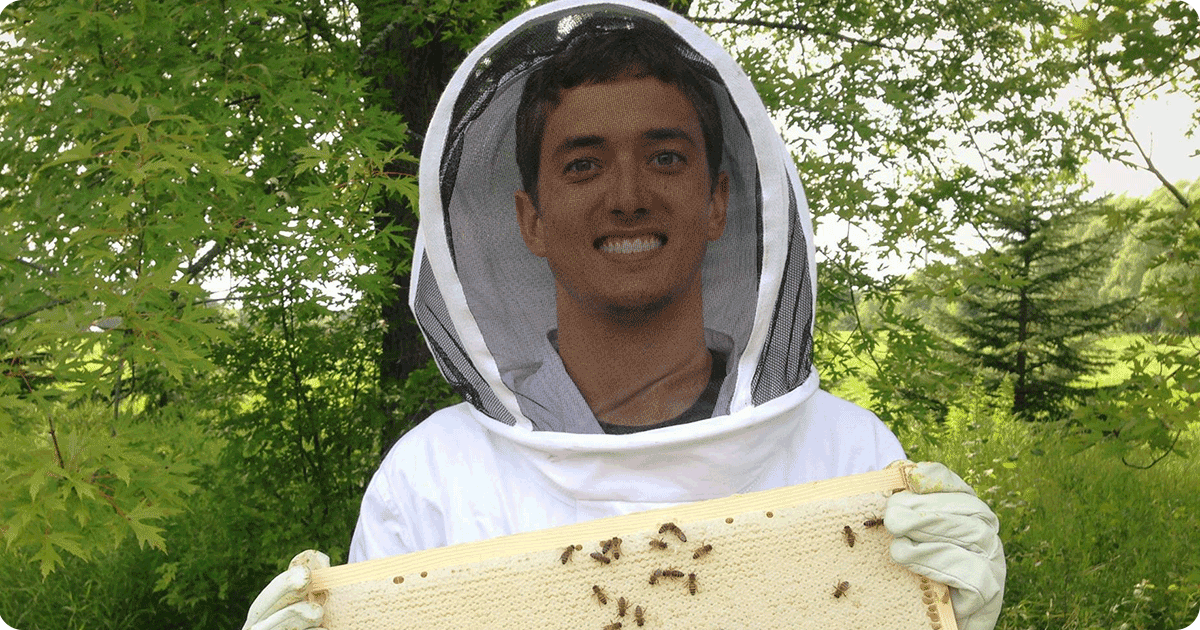Bee Bella grows exports in Japan
Initially, friends James Wiciak, Scott Haskins, and Jonathan Dudzinski began beekeeping as a hobby in the Oshkosh area.
Dudzinski’s father was a beekeeper who shared his love for beekeeping and ecology with his son.
“I found that I loved the connection to nature just as much as he did,” Dudzinski said. “While my dad saw it as an enriching backyard hobby, I wanted to turn it into a full-fledged business.”
Partnering with Wiciak and Haskins, he used this knowledge to build built hives in the loft of Haskins’ parents’ barn. Eventually they began placing hives at several locations around Oshkosh, parlaying the honey into a sustainable, local lip balm business. Bee Bella lip balm now competes with big names in the market while being completely sourced in Wisconsin.
 Bee Bella lip balm lip balm is hand-poured in Oshkosh in small batches using honey from local beekeepers. The company just surpassed the milestone of creating its millionth tube of lip balm, when only a few years ago they were making small batches to sell at the Oshkosh Farmers Market. “Now, we’re producing at a scale we never imagined,” Dudzinski said. “It’s been an incredible journey.”
Bee Bella lip balm lip balm is hand-poured in Oshkosh in small batches using honey from local beekeepers. The company just surpassed the milestone of creating its millionth tube of lip balm, when only a few years ago they were making small batches to sell at the Oshkosh Farmers Market. “Now, we’re producing at a scale we never imagined,” Dudzinski said. “It’s been an incredible journey.”
The company has grown to a total of eight employees; they aim to sell their product in local boutiques across the state. And their lip balm is resonating: They recently expanded into Japan.
“The Japanese culture values craftsmanship, the art and romance of the artisanal manufacturing process, and taking pride in one’s work to a whole new level,” Dudzinski said. “I am proud to say that Bee Bella lip balm checks all those boxes.”
They also hope to develop export markets in Canada, Germany, and the United Kingdom.
Support helps the business expand
So far, Japan is the first overseas market.
“We also believe in growing at a sustainable pace,” Dudzinski said. “There is a famous saying that more businesses have died from indigestion than starvation, and I think many small business owners can appreciate the wisdom of that statement.”

Scott Haskins, Jonathan Dudzinski, and James Wiciak
The Wisconsin business environment has been supportive, Dudzinski noted. The Greater Oshkosh Economic Development Corp. provided subsidized loans for startups, which he called “a critical ingredient to getting our business off the ground.”
Also, being near the University of Wisconsin-Oshkosh helped the company recruit quality employees, he added, because he can hire high-quality college students and graduates as well. Also, he appreciates the preferential tax treatment Wisconsin offers manufacturers.
WEDC was the “catalyst and the impetus for expanding globally,” Dudzinski said. “We simply would not have attempted it without their support.”
By participating in ExporTech™, a multi-month program offered by the Wisconsin Manufacturing Extension Partnership with support from WEDC, they learned the basics of exporting and the resources and opportunities available to them. After completing the course, they participated in a WEDC-led trade mission to the Benelux region, garnering encouraging leads. And WEDC provided a connection to a contact in Japan that helped them run a market assessment, consider regulatory and tax issues, and—crucially—introduced them to importers and distributors.
“These introductions proved invaluable, and they never would have happened without WEDC,” Dudzinski said.
An International Market Access Grant from WEDC also reimbursed them for a portion of expenses, “critical for allowing us to take the leap,” he said. “Otherwise, the financial risk would have been too great for us at our current size.”
Success helps build beekeeping businesses
Right now, the company offerings range from a Door County cherry lip balm to vanilla options. Customers can also personalize the bamboo tubes with a child’s name or wedding date. Ingredients include lanolin, organic cocoa butter, and locally sourced Wisconsin beeswax. The products’ small size makes them ideal for exporting.
Dudzinski is passionate about helping local beekeepers; the company gives a portion of their profits to honeybee research. They actively support research efforts at the U.S. Department of Agriculture and the University of Minnesota’s Honeybee Lab to tackle what Dudzinski describes as the “critical challenges facing honeybees today,” including colony collapse, where a hive dies suddenly for no clear reason, or varroa mites that harm bees.


